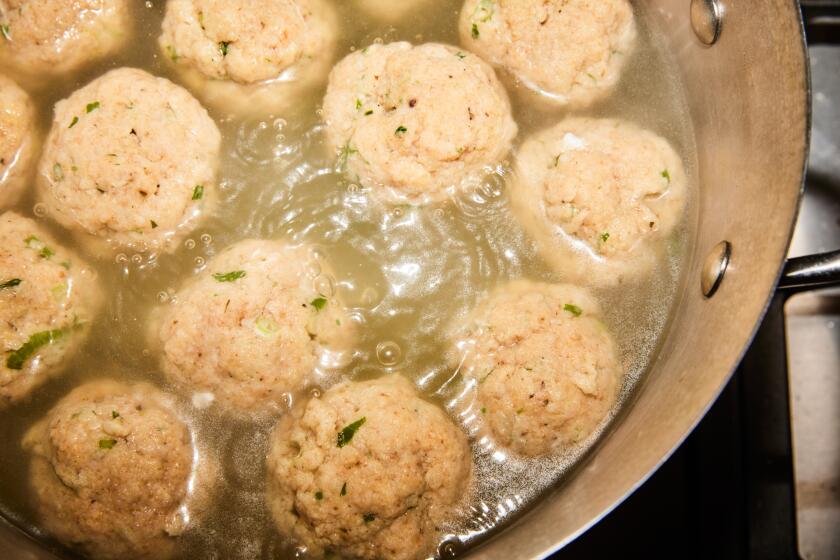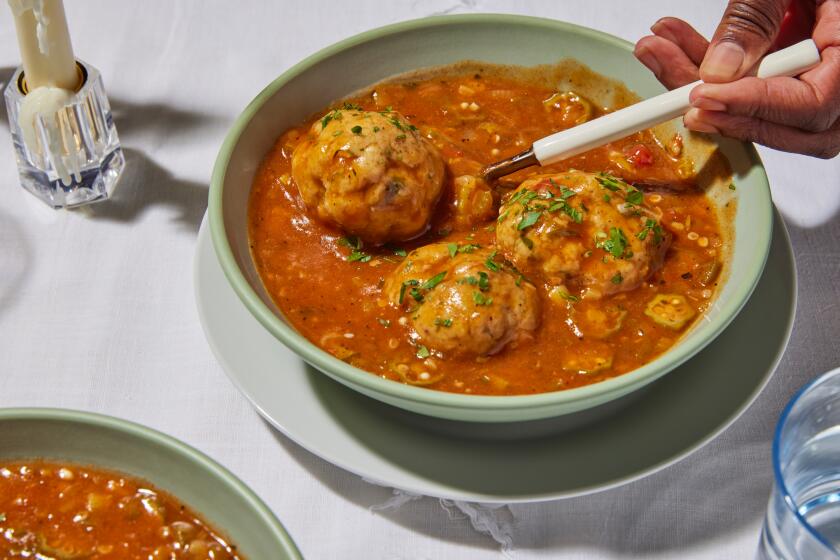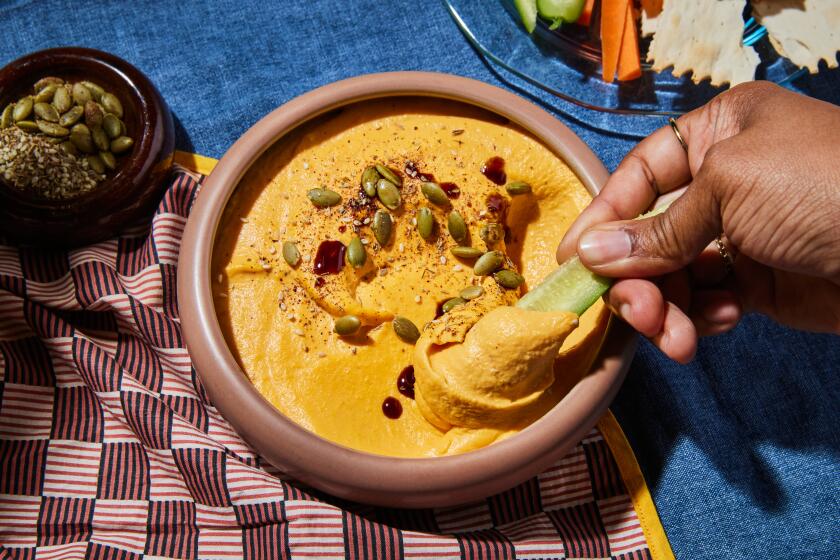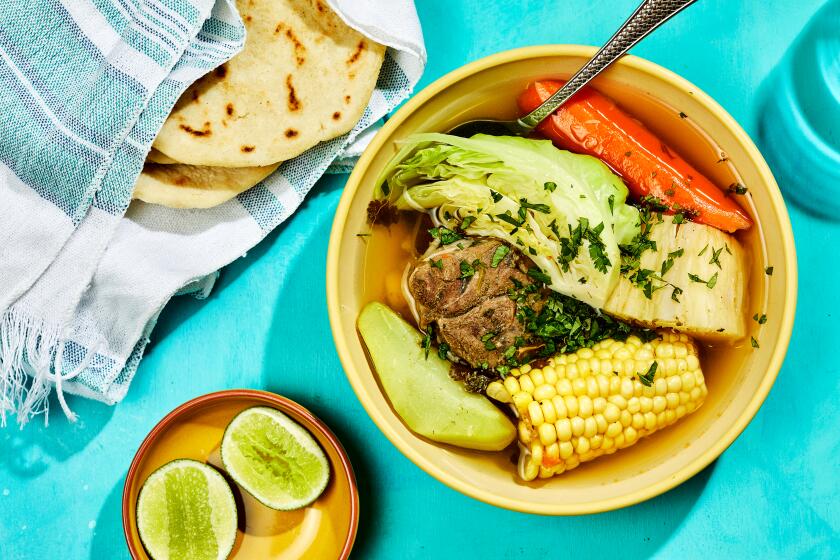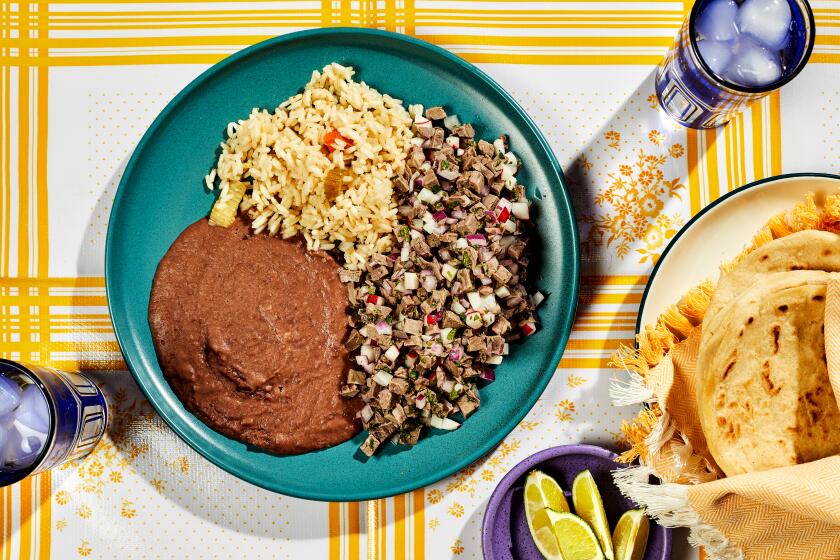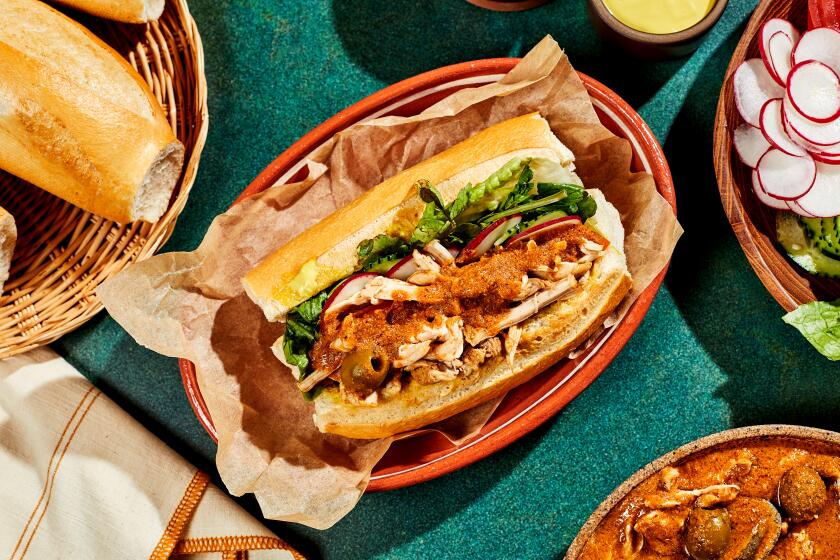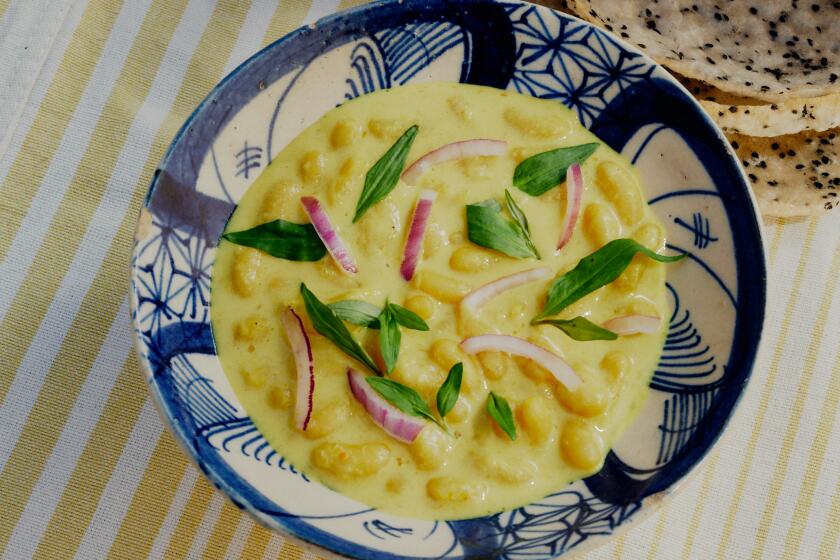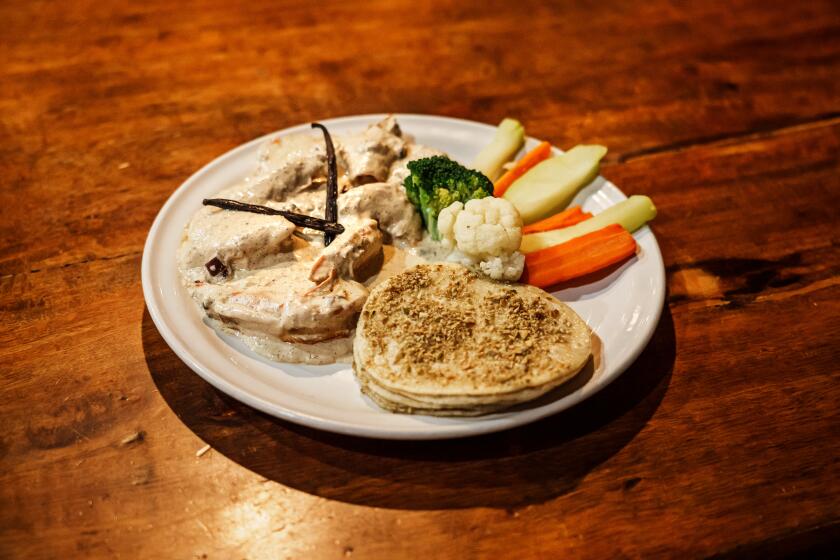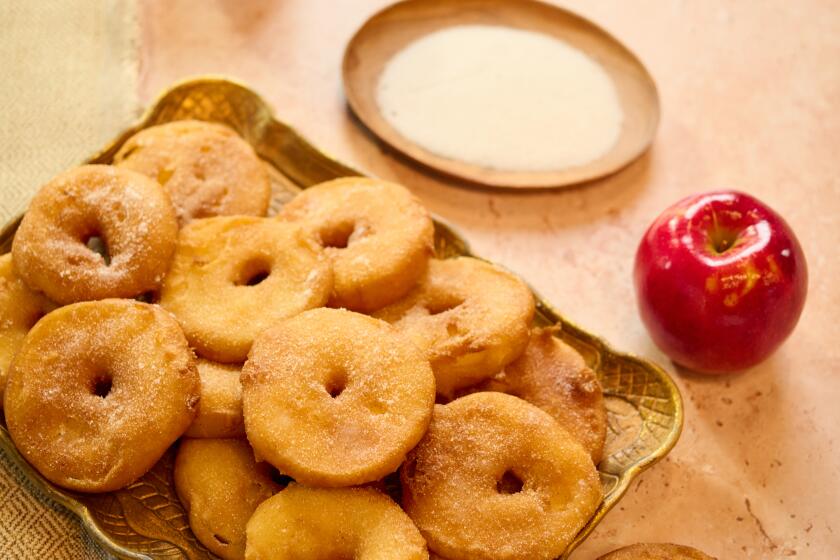Spicy meatballs with adjika and yogurt
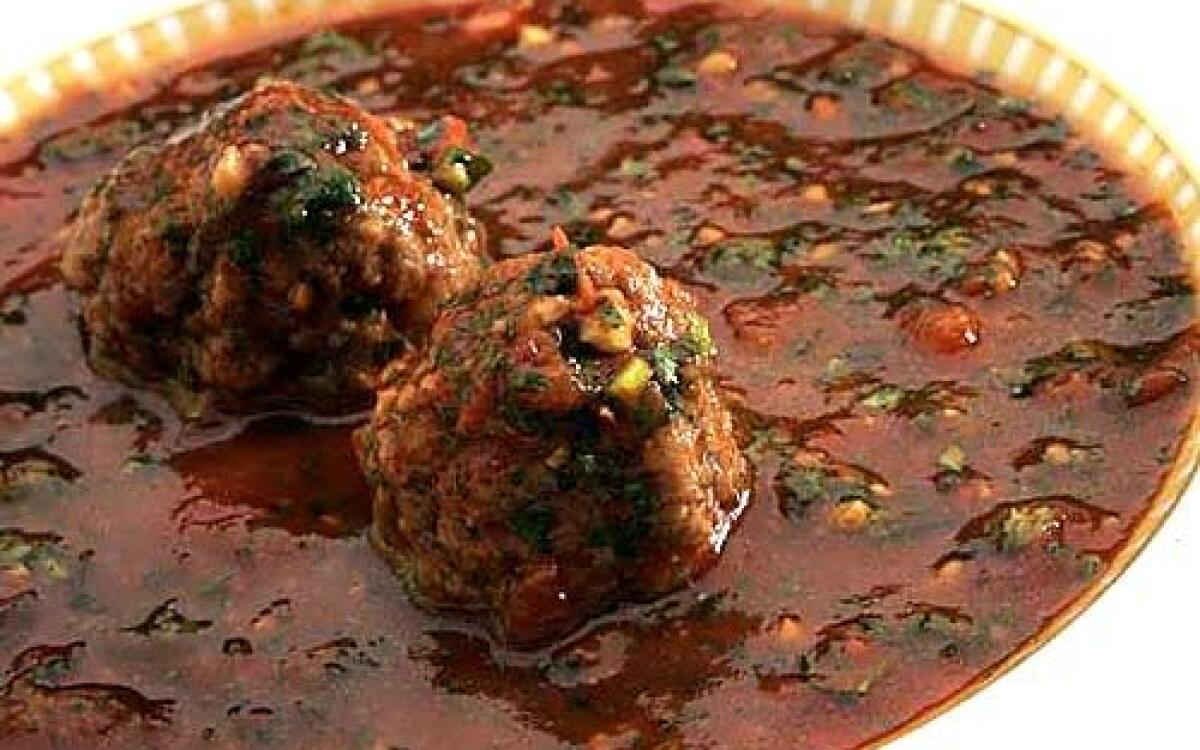
Cookbooks tend to divide into spatial categories: those that are close to home, essentially explorations of the author’s kitchen or family cuisine; and those that roam further afield to examine the food and culinary traditions of other cultures. “Samarkand: Recipes and Stories from Central Asia and the Caucasus” is not only the latter, but a particularly expansive and ambitious example of the genre. Imagine a Lonely Planet guide to Uzbekistan and beyond, with a hundred recipes.
The cookbook is by Caroline Eden, a travel writer and journalist, and Eleanor Ford, a food writer and recipe developer, and their voices combine with photography from Laura Edwards to make this read like the travelogue it is. Eden first came to the city of Samarkand, in what is now Uzbekistan, in 2009 and quickly got hooked on both the history and the cuisine. The project: to gather the food of the seven major groups of the region — Tajiks, Russians, Turks, Jews, Koreans, Caucasians and Uzbeks — into a book-length feast. The resulting banquet, of course, is not just on the tables; it’s a mash-up of stories and cities and people and history.
Samarkand is no ordinary Silk Road city, but “Asia’s greatest store window,” writes Eden, a regular contributor to the Guardian, “where everything from rare spices to yak-tail fly whists were bartered and sold.” So the pages incorporate not only recipes — both traditional and updated — but side trips to Tbilisi and other places, Alexandre Dumas quotes, discussions of post-Soviet architecture, as well as the bazaars and mausoleums that Samarkand is known for, and a brief history of the 14th century ruler Tamarlane, who apparently liked to throw massive dinner parties.
As for the food itself, the recipes are directly written and friendly, with headnotes that sometimes give market tips and sometimes detour into history. A recipe for Koryo spicy carrots, for example, traces the dish to Koreans who arrived in Uzbekistan as deportees in the 1930s. As you turn the pages, you’ll find things like: a recipe for lamb kebabs, a consideration of samovars, an ode to mulberries, and a whole section on plov, the rice pilaf dish that, we’re told, is “the undisputed king of Uzbek cuisine.” So: if you like some backstory with your recipes — and have always wanted to make a kulebyaka for your own next dinner party — this is a very fun read.
Cookbook of the Week: “Samarkand” by Caroline Eden and Eleanor Ford (Kyle Books, $39.95)
Adjika
In a food processor, combine the chiles, tomatoes, garlic, celery, cilantro, basil, dill, oils, vinegar, sugar and salt, pulsing to blend into a chunky paste. The flavor will become more rounded and mellow if you make the paste in advance and let sit for a while. This makes 3 cups adjika.
Meatballs
Soak the bread in the milk for about 10 minutes to soften. Meanwhile, in a large bowl, combine the ground pork and beef, onion, garlic, barberries, sumac, cayenne, coriander, pepper and salt, using your hands to combine everything thoroughly. Mash together the bread and milk to make a paste, then mix this into the meatball mixture. Roll into meatballs; I like them golf-ball sized.
Heat a slick of oil in a frying pan and cook the meatballs in batches. Start at a high heat to brown the outside, then lower the temperature until the meat is cooked through.
Serve with the adjika and a generous dollop of yogurt.
Get our Cooking newsletter.
Your roundup of inspiring recipes and kitchen tricks.
You may occasionally receive promotional content from the Los Angeles Times.


